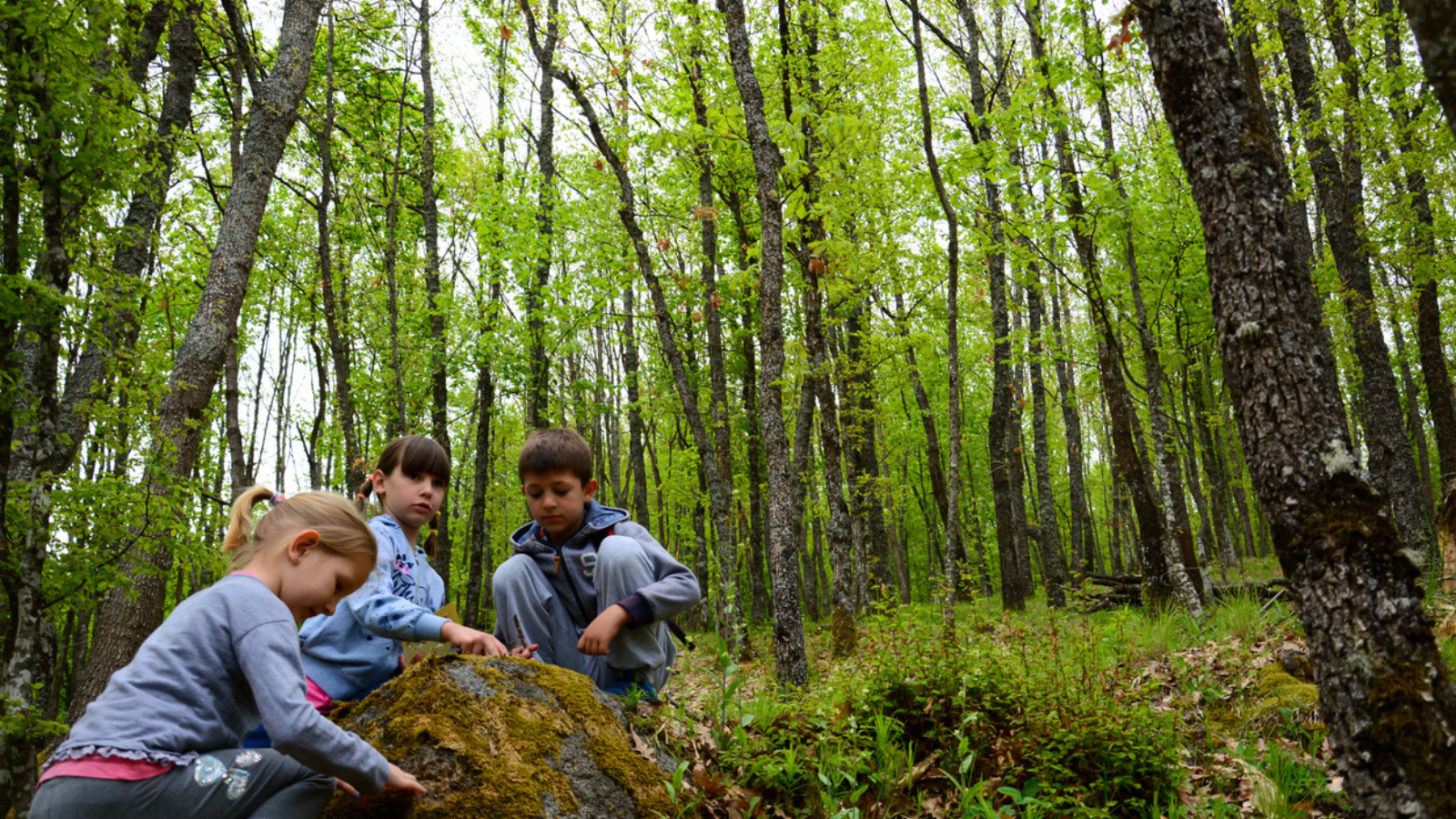Developing outdoor activities that focus on providing pupils with experiences of vocational careers.

Quick links:
Information about the School
Ysgol Llanfair Dyffryn Clwyd is located in the rural village of Llanfair, two miles south of Ruthin. It is a bilingual controlled school where parents choose the teaching language for their children, either Welsh (around 80%) or English (20%), but Welsh is the school’s everyday language. The school has 4 mixed-age classes: Nursery and Reception, Years 1 and 2, Years 3 and 4, and Years 5 and 6. The school moved to its new home from the old building to the new building in March 2020.
Context and background to the effective or innovative practice
Ysgol Llanfair has a great deal of appreciation for the outdoor learning philosophy and pedagogy, and has invested in this over the years. Staff have been learning through the use of outdoor Forest School provision for several years. After seeing the positive effect this has had on pupils’ learning and well-being, plans were made to expand such opportunities further. The decision was made to teach science in the outside area in order to encourage pupils’ curiosity, problem-solving and teamwork through real life experiences. Pupils develop their independence and also their cooperation skills, and take responsibility for the type of activities and investigations they would like to undertake, which develops engagement with their learning and their wider life skills.
Description of nature of strategy or activity
At the beginning of each term, pupils learn about new jobs such as engineers, ecologists or farmers. They then adopt the job role and get to know the types of skills that require development in order to undertake the role. Through a letter, phone call, e-mail or advertisement, pupils receive a task or problem to solve. Their assignment is to respond to the task and solve the problem, or respond to the challenge given. They must gather relevant information by quantifying the theme, creating questionnaires, weighing, testing soil, recording the weather, for example. Sometimes, they need to research historical and contemporary concepts in the area in order to gather ideas.
After gathering information, pupils are expected to create a prototype: a water wheel or a boat, for example. During this process, pupils are given plenty of opportunities to give it a go, try again, improve and refine their work, persevere and reflect on their learning and the process of learning from their mistakes. Sometimes, a problem must be solved by answering a question such as: ‘How can we improve the field’s drainage?’ or ‘How can we reduce the noise of the school bell?’. They have opportunities to research before making decisions such as: ‘What material is best to suppress the noise of the bell?’ or ‘Which parts of the field are the wettest?’.
The final step is to present their prototype or idea to the company, committee or community. They do this by email or a presentation, a poster to promote their idea, or through role play.
Throughout the process, pupils keep records, just as if they were in the real job, by drawing up maps, plans to scale, information sheets, questionnaires, letters and emails. The whole process plays an important role so that pupils have opportunities to learn about different jobs. Pupils also develop skills through the use of a variety of tools such as a ‘data box’, pH strips, thermometers and measuring wheels, and provide reasoning for their choice in order to boost their confidence and experience, and to reflect on their effectiveness as they learn.
What impact has this work had on provision and learners’ standards?
Discussions with pupils and parents/carers have revealed that pupils enjoy and look forward to activities that promote their well-being and their attitudes to learning. Through these valuable experiences, pupils experience an increase in their confidence to learn independently and to choose and use equipment, and in their confidence to work together in a group, leading or receiving instructions, for example. Pupils manage their time and complete their tasks well and decide when to move on to the next task after evaluating and reflecting on the success of their learning.
Through practical learning, pupils discuss with confidence what they have learned. They remember and recall information well about previous activities in order to make predictions and reach valid conclusions when discussing what they have observed and experienced.
There is also evidence of an increase in pupils’ confidence, and more notably in the opportunities for pupils who have difficulty recording information to thrive in these activities, and develop confidence and success. Staff place value on the context of developing the whole child as pupils receive lessons to foster their scientific curiosity and an interest in the natural world outdoors.
How have you shared your good practice?
The headteacher delivered a presentation at a headteachers’ cluster meeting on what we do at the school. Subsequently, teachers from other schools have come to observe activities and discuss what we are achieving. Furthermore, the school’s work and developments have received praise in the Bevan Foundation’s Young Future Thinkers scheme, and received a recognised award.